Why Is Kazakhstan, a Muslim Nation in Central Asia, Opening Its Doors to The Israeli Occupation?
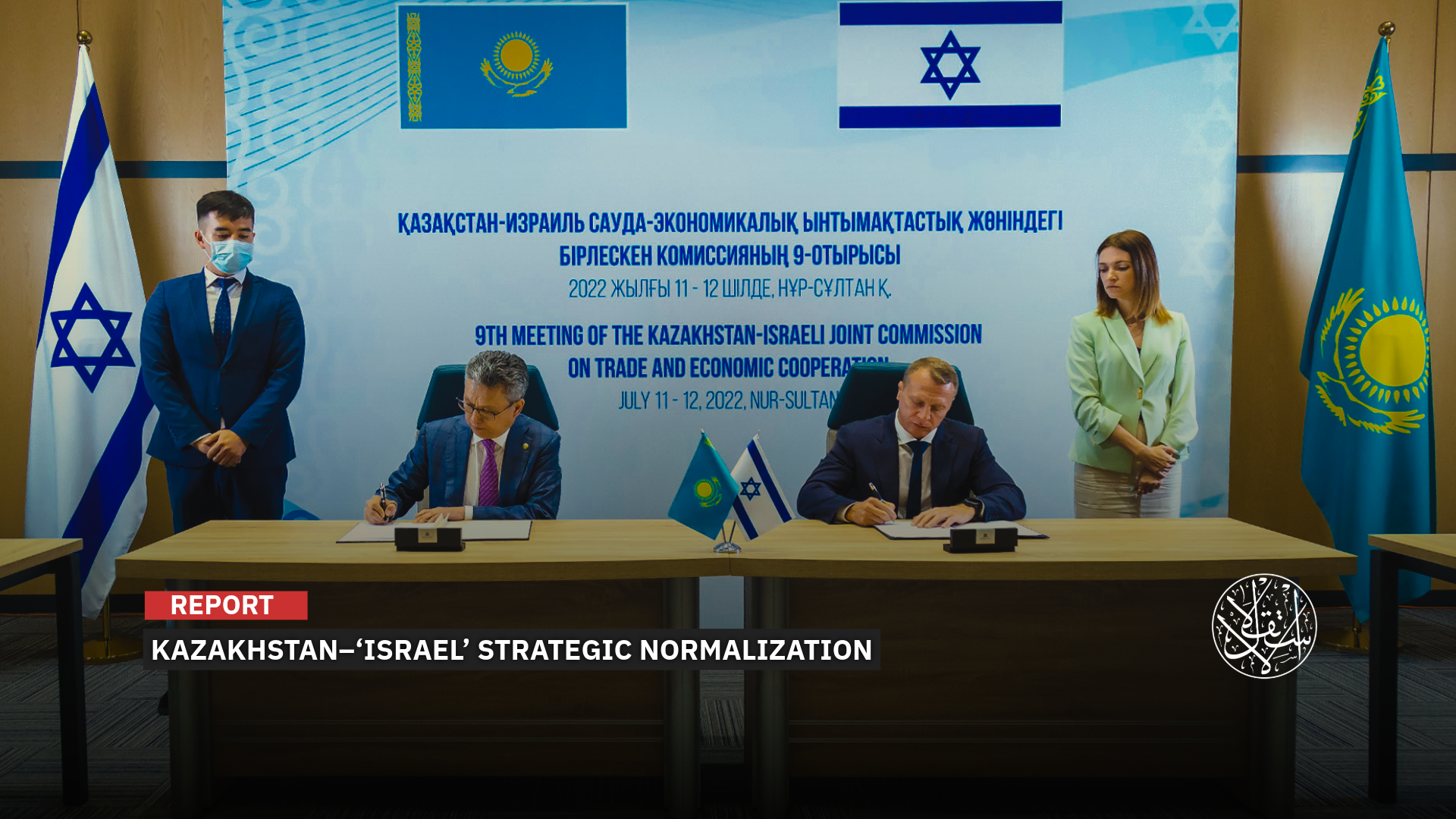
“Israel” and Kazakhstan’s ties illustrate how Ben-Gurion’s “Periphery Doctrine” plays out in the real world.
In a scene reminiscent of the diplomatic fanfare that surrounded the 2020 Abraham Accords, U.S. President Donald Trump announced on 6 November 2025 that Kazakhstan had formally joined the normalization process with “Israel” becoming the first Central Asian nation to do so since the accords were signed five years ago.
The announcement, made during a White House dinner at the U.S.–Central Asia Summit, carried unmistakable political symbolism.
It allowed Trump to once again cast himself as a “deal-maker” and self-styled peacemaker, while observers viewed the move as an expansion of the normalization drive, stretching its reach from the Arab world deep into the Asian heartland.
Yet behind the celebratory rhetoric in Washington and “Tel Aviv” lies a more complex question: does Kazakhstan’s move signal the beginning of a new Asian wave of normalization, or is it simply the culmination of long-standing economic and security ties that have quietly bound Astana and “Tel Aviv” for decades?
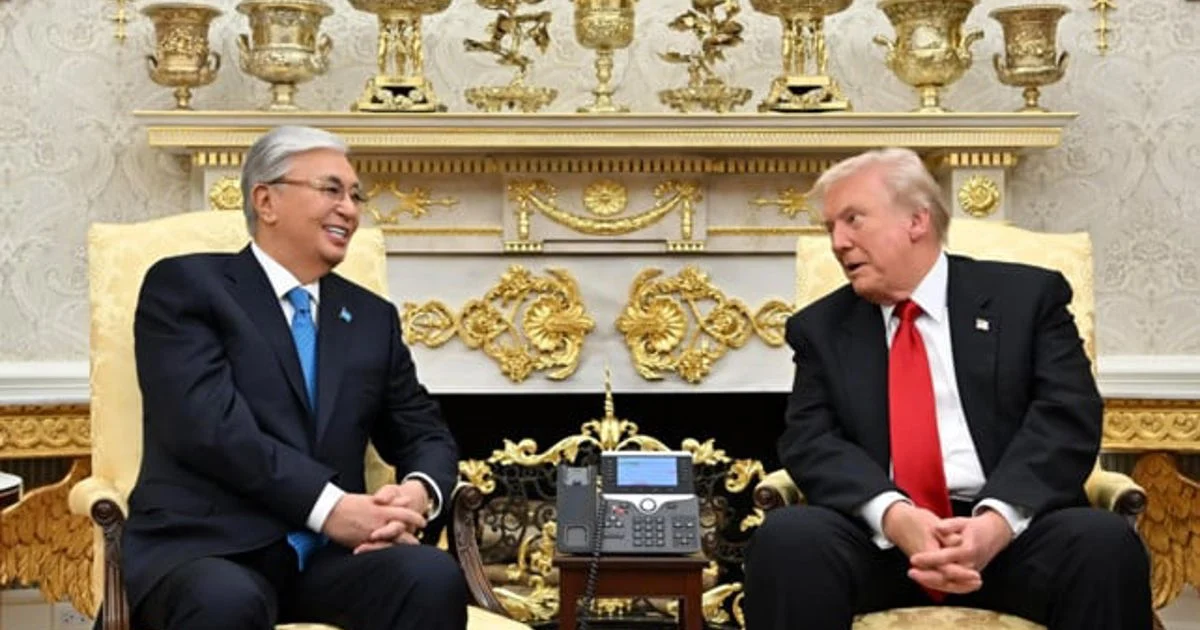
Official Announcement
Speaking before Central Asian leaders, President Donald Trump declared, “I am very pleased to announce that Kazakhstan has officially agreed to join the Abraham Accords. About fifteen minutes ago, a great nation under strong leadership formally joined the accords. It is a great honor to be with you.”
The announcement, made in the presence of regional heads of state, including Kassym-Jomart Tokayev of Kazakhstan, Sadyr Japarov of Kyrgyzstan, Emomali Rahmon of Tajikistan, Serdar Berdimuhamedov of Turkmenistan, and Shavkat Mirziyoyev of Uzbekistan, underscored Washington’s renewed focus on Central Asia.
In a post on his Truth Social platform, Trump said he had spoken with Israeli Prime Minister Benjamin Netanyahu and that an official signing ceremony would take place soon.
The move followed leaks reported by the U.S. outlet Axios, which revealed that Tokayev had planned to announce Kazakhstan’s entry into the Abraham Accords during his meeting with Trump in Washington, a plan that ultimately materialized.
Kazakhstan, however, is no newcomer to ties with “Israel.” The two countries established diplomatic relations in April 1992 and have maintained steady economic and military cooperation ever since.
According to data from Israel’s Central Bureau of Statistics, trade between “Tel Aviv” and Astana has remained consistent, with “Israel” recording a persistent trade surplus throughout this period.
Despite fluctuations in volume, bilateral trade peaked in 2020, reaching $123 million, while in the first eight months of 2025 it amounted to just $34 million, according to Israeli figures.
Kazakh statistics, however, tell a very different story. Data from Kazakhstan’s National Statistics Bureau show that trade between the two countries reached around $80 million during the same period in 2025, more than double the Israeli figure.
This discrepancy is not new. It has recurred for at least five years. In 2020, Kazakhstan reported trade figures three times higher than “Israel’s,” the gap widened to eightfold in 2021, and reached its peak in 2022 when Astana valued trade at $883 million compared with “Israel’s” $79 million, eleven times higher.
In 2023, the difference remained sixfold, before narrowing to fourfold last year, in a pattern that continues to raise questions about the transparency of Israeli trade data.
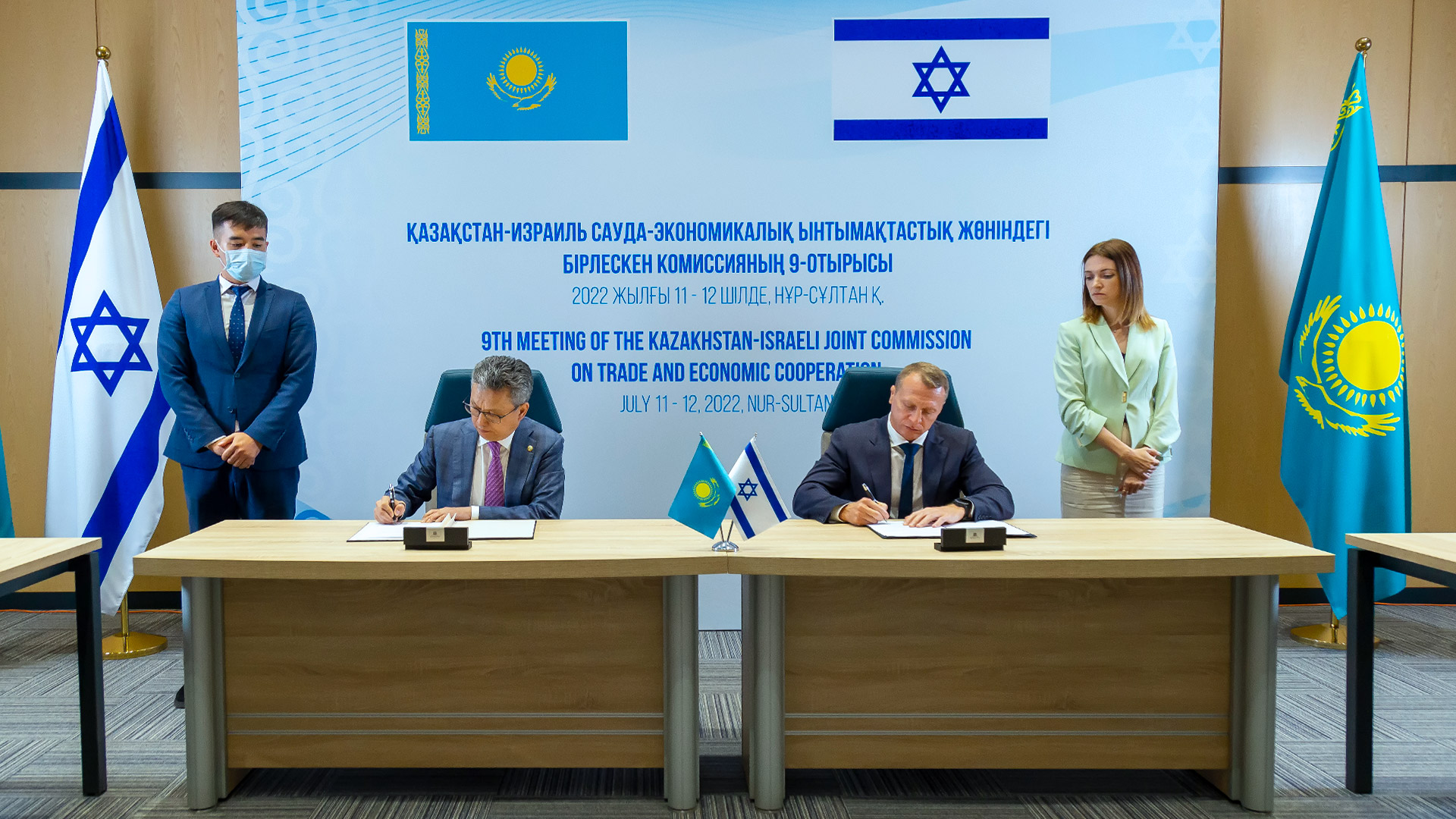
Mutual Tourism
Alongside trade, tourism between the two countries has remained steady since the 1990s.
Around 18,000 Kazakh tourists visited “Israel” in both 2013 and 2015, before numbers dropped sharply during the COVID-19 pandemic in 2020 and continued to decline amid the ongoing Israeli war on Gaza.
Data from Israel’s Ministry of Tourism show that only about 1,200 visitors arrived from Kazakhstan last year, with a slight uptick to roughly 1,300 during the first ten months of this year.
On the other side, Kazakh statistics recorded 4,875 Israeli tourists visiting Kazakhstan last year, underscoring the persistence of people-to-people exchanges despite regional turmoil.
Recent months have also seen official visits exchanged between ministers, parliamentarians, and other officials, as well as participation in training programs held in “Israel.”
Kazakhstan has also played a role in the broader wave of migration from former Soviet republics to “Israel” following the collapse of the Soviet Union in the early 1990s.
More than 1,000 Kazakhs immigrated to “Israel” in 1990, with the number gradually rising to around 18,000 by 2001.
Migration continued at a slower pace over the following two decades, declining further during the past two years amid the war in Gaza, though never coming to a complete halt.
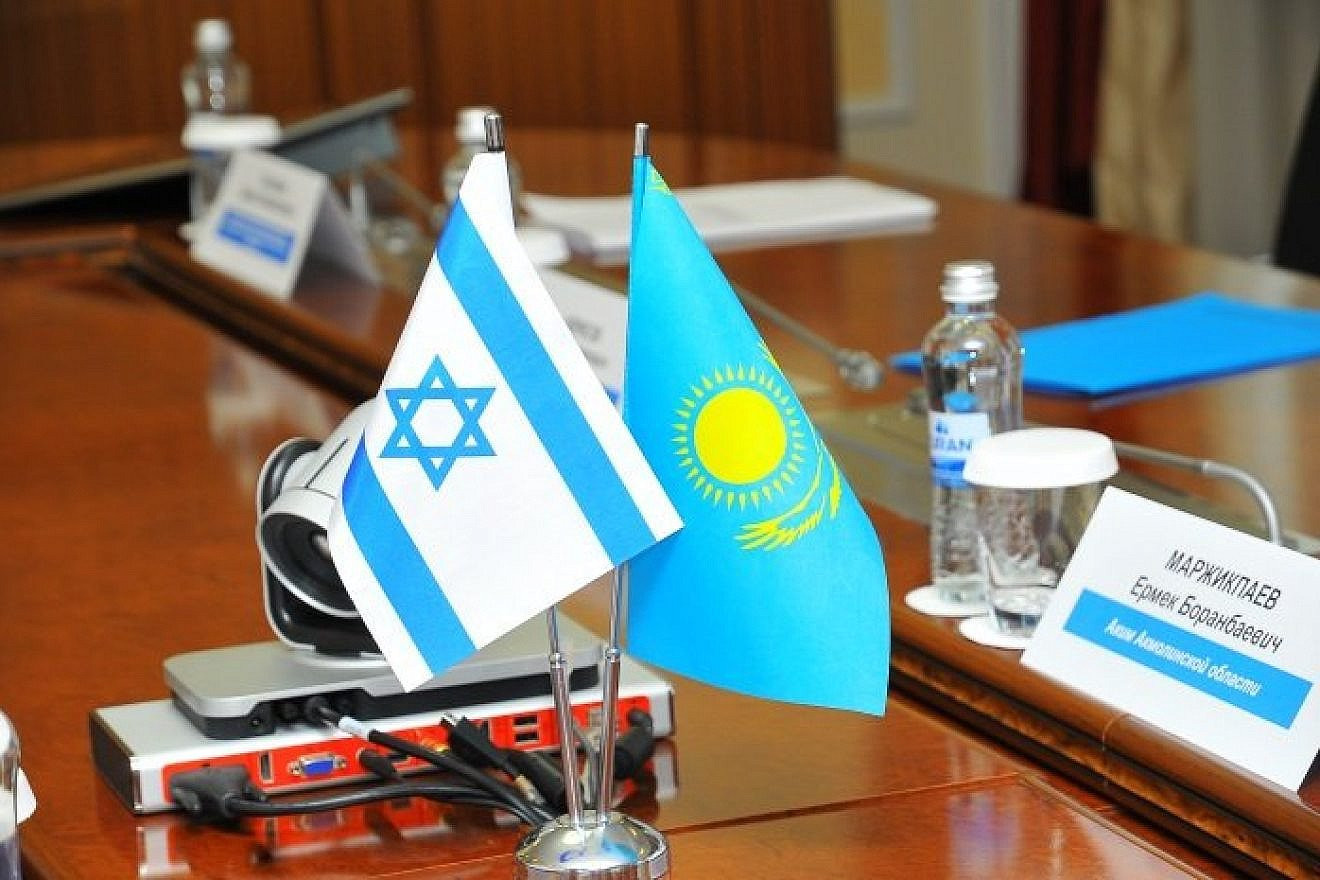
Israeli Occupation Weaponry
Behind the veneer of energy ties, a close military partnership has also taken shape between the two countries.
In 2014, “Tel Aviv” and Astana signed a defense agreement that included advanced arms deals involving drones, guided missiles, and radar and communication systems produced by the Israeli companies Elbit Systems and Israel Aerospace Industries.
In May 2021, Kazakhstan Aviation Industry launched a drone production and maintenance facility licensed by Elbit Systems, making Kazakhstan the first Central Asian state to develop a domestic drone industry using Israeli technology.
Reports from human rights organizations, including Amnesty International, have also pointed to the Kazakh authorities’ use of Israeli spyware such as Pegasus, developed by NSO Group, along with surveillance tools from Verint Systems and Nice, allegedly deployed against journalists and activists inside the country.
The cooperation between the two sides has gone beyond oil and weaponry, extending into cybersecurity and digital surveillance.
Amnesty International revealed that four Kazakh activists’ phones were hacked using Israeli spyware, reflecting the depth of technological collaboration between the security services of both countries.
In a related context, the Israeli company Beit Alfa Technologies (BAT) sold 17 riot-control armored vehicles to Kazakhstan roughly a decade ago, illustrating how the security partnership has also encompassed tools of domestic control.
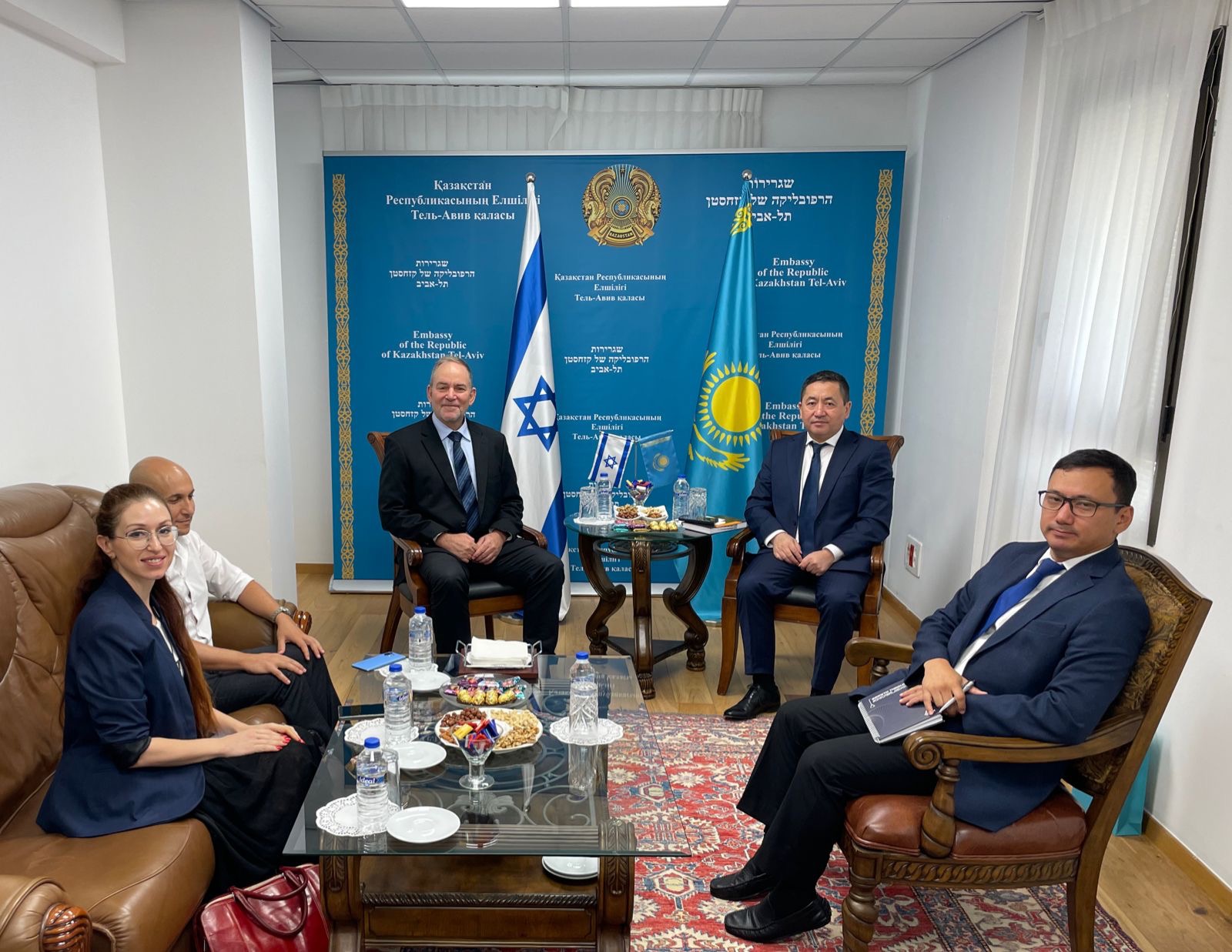
‘Periphery Doctrine’
In a paper published by the Al Jazeera Center for Studies on September 28, 2022, researcher Saleh al-Naami argued that “Israel’s” relationship with Central Asian states, particularly Kazakhstan, represents the practical embodiment of what is known as the “Periphery Doctrine,” first outlined by David Ben-Gurion in the 1950s.
This strategy rests on forging alliances with non-Arab states on the periphery of the Middle East to counterbalance Arab hostility, by deepening ties with countries such as Turkiye, Iran (in earlier decades), Ethiopia, and later, Kazakhstan.
According to the study, “Israel” views Kazakhstan as a dual strategic asset, both as a means of neutralizing Iranian and Turkish influence in Central Asia, and as a way of shifting the Islamic world’s center of gravity northward, thereby diminishing the Arab role in regional affairs.
That approach was clearly reflected in 2011, when Kazakhstan assumed the presidency of the Organization of Islamic Cooperation and invited Israeli representatives to attend an economic session as observers, an unprecedented gesture within the organization.
Analysts therefore contend that Kazakhstan’s accession to the Abraham Accords is not a sudden diplomatic turn, but rather an official acknowledgment of a long-standing alliance.
The country has been an economic and security partner of “Israel” since the 1990s, and what has unfolded recently is the transition of that cooperation from quiet partnership to open alignment.
Politically, the announcement serves as a symbolic asset for the Trump administration, which is seeking to revive the normalization file after stalled talks with Saudi Arabia, still contingent on the establishment of a Palestinian state.
Regionally, Kazakhstan’s entry grants “Israel” a new strategic foothold deep in Central Asia, close to Iran, Russia, and China, strengthening its presence in a non-Arab sphere long considered peripheral within the broader Islamic world.
The American magazine The National Interest echoed this view in an article published on November 7, 2025, noting that Kazakhstan’s inclusion in the Abraham Accords paves the way for extending normalization beyond the Middle East, potentially offering a platform for future cooperation with other Muslim-majority nations, and perhaps, in time, toward Southeast Asia and the Horn of Africa.
Sources
- Trump announces Kazakhstan’s accession to the “Abraham Accords” [Arabic]
- Kazakhstan joins the Abraham Accords after 33 years of normalization [Arabic]
- Israel in Central Asia: cooperation and partnerships forged over decades [Arabic]
- What does Kazakhstan’s accession to the Abraham Accords mean? [Arabic]










